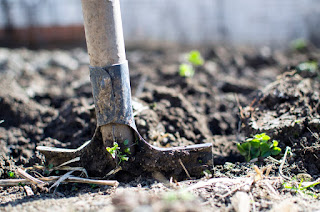Effect of Soil Compaction on Crop Yield

EFFECTS OF SOIL COMPACTION ON CROP YIELD Soil compaction adversely affects the crop yield by causing soil erosion and soil degradation, thereby decreasing the soil fertility. Soil compaction can result in a decrease in water uptake by the crops, reduction in crop nutrient uptake also reduce crop emergence and root penetration. All of which reduce the crop yields. How soil compaction is caused? Soil compaction is mainly caused by tillage equipment used during soil cultivation or by the heavy weight of the field equipment. Soil compression leads to the soil in the formation of particles of small volumes. As these particles are compacted together, the space between the soil particles decreases, thereby decreasing the space for air and water. Soil compaction can lead to a number of adverse effects on soil quality and crop production. ...
